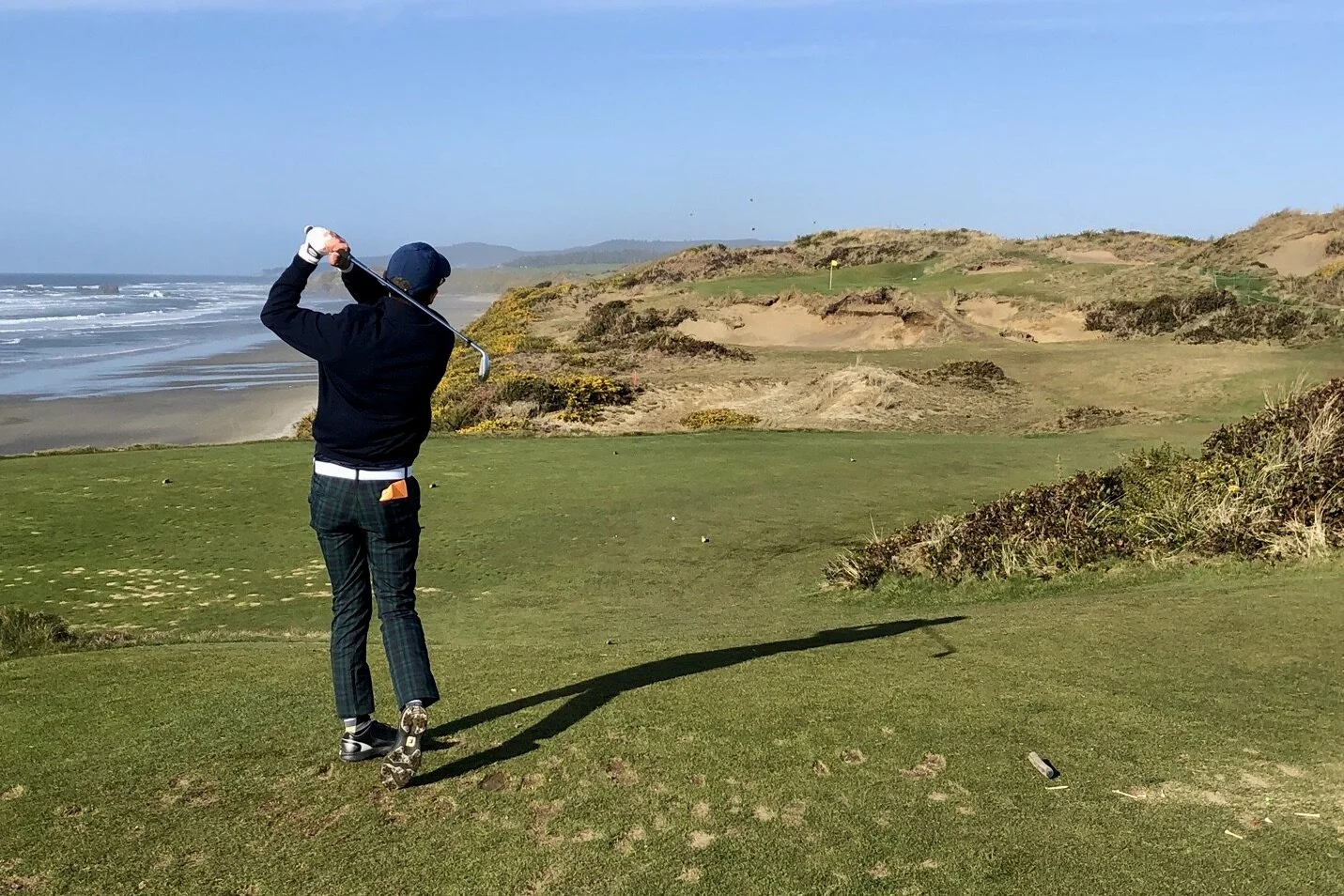What a crazy time to be alive and what a volatile beginning of the year we have witnessed. It would be very easy for all of us to become overwhelmed by the daily headlines, despondent at the varying outlooks, scared for what lay ahead or angry at the turn of events.
Pilot's Log: On Distracted Thinking
Pilot's Log: On Private Deals & How To Cut Through The Noise
Pilot's Log: On Support for Businesses from CARES Act
Crisis Investing Playbook
Pilot's Log: Introduction
We Came Prepared
2020 Volatility
2019 Year-End Review
Investing is very similar to golf: both are ultimately a test of patience. The greats practice their craft religiously. And the best are defined not by how good their best shots are, but by how good their bad shots were. The game is ultimately played over 18 holes and rewards consistency and not heroics. Here we see Jason’s oldest son, Christopher, teeing off…and learning that a round of golf is more than just one shot.
Recession: Should We Be Worried?
As the year unfolds, evidence is mounting that the economy is slowing, with multiple factors at play. The Federal Reserve reversed course quite suddenly at the end of December from raising rates to a more neutral, and even accommodative, stance. Some have begun to question whether we may see recession in 2020.
Fundamental Values that Drive Our Decision Making
We have written extensively about risk, volatility, and valuations over the last several years. From our perspective, it’s important to continually talk about the fundamental values that drive our decision making.
Along those lines, we wanted to share a bit more about the process of evaluating a company and the decision to invest. This quarter, our portfolio manager Nick Fisher walks through his in-depth analysis of Peyto Exploration and Development and why he recently decided to add it to portfolios. Meanwhile, Alex Bridgeman, our newest employee, highlights why a modest allocation to a company like Peyto is a good idea that not every investor is able to make.
Why We Like (some) Small Companies
We love investing in companies that offer clear paths for growth at cheap prices today with great management teams. It’s how our minds are wired, and we are always on the hunt for new, undiscovered opportunities.
We have recently increased our focus on looking for smaller, undiscovered, and cheap companies to add to portfolios. The “small” part is the newest edition to our process, and we believe there is a ton of value to be found in companies that are below Wall Street’s investment radar, companies they can’t invest in.
Q4 Note & Commentary
2018 had a little bit of everything. The beginning of the year got off to a roaring start with the fresh excitement of the new tax law and corporate tax cuts. But the party was short lived and concern creeped in around both trade and monetary policy. By the end of the year, 90% of global assets had a negative return.
Dogs Living With Cats
It used to be so simple and straight-forward: republicans believed in free trade; Trump and the Clintons were friends; my car took regular gasoline; and the market always went up.
Now the republicans sound like democrats. The democrats sound like republicans. The Clintons won’t ever be invited to another Trump wedding. My next car will plug into the wall. And evidently markets go up AND down. Next thing you know, dogs and cats will be living together.
The Fickle Nature of "Mr. Market"
Not a lot changed in the 2nd quarter since our Q1 letter. What has changed is the market’s perception of global trade. This has undoubtedly impacted the trading narrative around the US Dollar and consequently commodities and emerging market stocks, the very assets we are most excited about. The fickle nature of “Mr. Market” often allows us the opportunity to buy when prices are down, as we maintain our value discipline. As Warren Buffett says, when prices go down we should get excited (and buy more), but we often do the opposite. We view this current downturn in emerging market stocks as a major boon to prospective 10-year returns.
A Summer Guide to Kids and Money
As summer is upon us, many of us including myself are trying to figure out what to do with the kids. By now, most of the major activities/camps are scheduled, but what about the rest of the time? I am sure video games, basketball or other activities are at the top of their list, but what else could we be encouraging our kids to do? The research is pretty compelling: they should start a business!
Investing in the Future
Founded by Nick Fisher (Portfolio Manager, Pilot Wealth Management) and his wife Maurissa, Young Entrepreneurs Business Week (YEBW) was started in 2005 with a simple vision— to host a summer camp where Oregon high school students could get inspired and learn how to become leaders in the world of business. We were excited when 26 students attended our first Business Week on the campus of the University of Portland, and had high hopes the program would grow in the coming years. Little did we know just how many students we would be able to reach, not only in Oregon, but also from across the country and even internationally!
Don't Fear It: Volatility is Our Best Friend
I have previously discussed the biggest risk in today’s markets is that investors will be unable to achieve their goals. In terms of retirement planning, either investors will have to work longer or save more, and current retirees will risk outliving their funds. High valuations, and thereby low expected returns, are the culprits. We have been positioning our clients to weather this environment and fortunately, the significant increase in volatility recently seen is here to help.
The Lion in the Grass
The first three months of the year have reminded everyone that volatility is not just a myth: it actually exists. January opened the year on a tear, only to erase nearly all the gains in February. March saw the S&P 500 turn negative on the year.
This quarter, Nick goes wildlife tracking. In addition to searching for the proverbial lion in the grass, he’s noticed some subtleties in the investment environment that have shown themselves in the evolution of our portfolios. We are feeling great about our current stance and highlight how a conventional 60/40 portfolio with US growth stocks and interest-rate sensitive bonds is actually incredibly risky.
The Business of Real Estate
Our goal as a Registered Investment Advisor is to provide our clients with the best risk adjusted returns in the pursuit of achieving their goals. We try to be agnostic regarding how investors achieve their return and many of our clients invest in real estate as part of their overall strategy. Many we have spoken with recently are increasingly cautious when it comes to acquiring new real estate investments. This is a result of either prices being too high relative to potential rents and/or a worry about the Federal Reserve’s change in monetary policy. So, how worried should we be? Do high prices and higher interest rates justify caution?





















